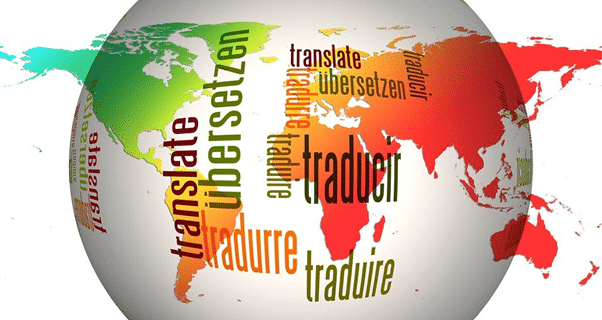IMPROVE YOUR CAREER PROSPECTS BY LEARNING ANOTHER LANGUAGE
Can learning another language really help your career prospects? According to the data, the answer is a resounding yes. Although the figures vary, it’s generally accepted that bilingual employees earn between 10% and 20% more than their monolingual counterparts. Indeed, a poignant example of this is the US military. Those that can communicate in more than one language earn, on average, $1,000 more per month than someone who speaks one language. This is thanks to an initiative known as the Foreign Language Proficiency Bonus (FLPB).

Source: Pixabay
Of course, you might argue that speaking a foreign language is crucial in the military but not so important if you work in an office. Wrong. Almost anyone in almost any profession can boost their career prospects by learning another language. Aside from the fact that it shows you’re an educated, well-rounded individual, becoming bilingual is extremely useful in today’s borderless digital world. Whether you realize it or not, the world has gotten smaller thanks to the internet. Therefore, almost every business can utilize the skills of a polyglot.
With this in mind, here are three reasons you should enhance your language skills in order to upgrade your career prospects:
YOU CAN CONNECT WITH INTERNATIONAL COLLEAGUES AND CLIENTS
One of the best reasons to learn another language is so you can communicate with people from other parts of the world. In business terms, this means you can connect with colleagues at another branch of a company and/or help infiltrate new markets. For example, let’s say you learn to speak French with a tutor online. You use a combination of questions, word lists, and one-to-one conversations with native speakers and you become proficient in French.
This means you can communicate with approximately 300 million French speakers around the world. From France and Canada to Switzerland, Haiti, and Cameroon, you’d become the key that can unlock business in multiple continents. Any CEO, regardless of the industry you’re in, would love to have someone that can speak to people in Europe, North America, and Africa. If you can become that person, your career prospects are bound to improve.
YOU CAN GET A JOB ANYWHERE IN THE WORLD
Polyglots can bring new international opportunities to a company, but they can also go out and find new opportunities of their own. In other words, if you can speak more than one language, you can get employment in another country. So, let’s say you’ve just read the Blacktower Financial Group’s Quality of Life Index. You look through the list and find that the average monthly salary is best in Switzerland. You couple that with its strong happiness rating, and you decide this is the country for you.
Although English is spoken in Switzerland, its four main languages are German, French, Italian, and Romansh. Learn to speak any of these and you’ll make it much easier to land yourself a job in your chosen field. Of course, you’ll have to have the skills, qualifications, and experience to back up your application. However, a Swiss company will always prefer someone that speaks one of the national languages. Moreover, you’re likely to be seen as a valuable candidate because you’ll come from another country and, therefore, be able to offer an international perspective on things.
LEARNING A SECOND LANGUAGE CAN MAKE YOU SMARTER
Employers are always looking for the brightest individuals and the ones who can solve problems with relative ease. Well, if you can learn a second language, you might get a little bit smarter and a little bit better at solving problems. Professor Vivian Cook from Newcastle University and Dr. Benedetta Bassetti from the University of York have studied the link between language and intelligence for decades. In their book, Language and Bilingual Cognition, they note that learning a second language helps you have a better understanding of your native tongue.
Moreover, they’ve found that it can offset dementia in early age and actually have an impact on the way you view the world. For example, Italians use the words celeste and blu for the English word “blue.” Celest literally means “sky-colored,” while blu refers to a dark blue. Thus, English speakers not only have to learn the different words but the cultural perspectives. What might simply be referred to as “blue” in English may be one of two things in Italian.
Having to think like this helps develop a mental dexterity that can help you see problems from different angles. It also gives you a deeper appreciation of language and culture. These are all things that can make you a smarter individual and, therefore, a more attractive employee. So, if you want to impress CEOs, become an international link between two companies, or apply for jobs in another country, it’s definitely worth learning a second language.








